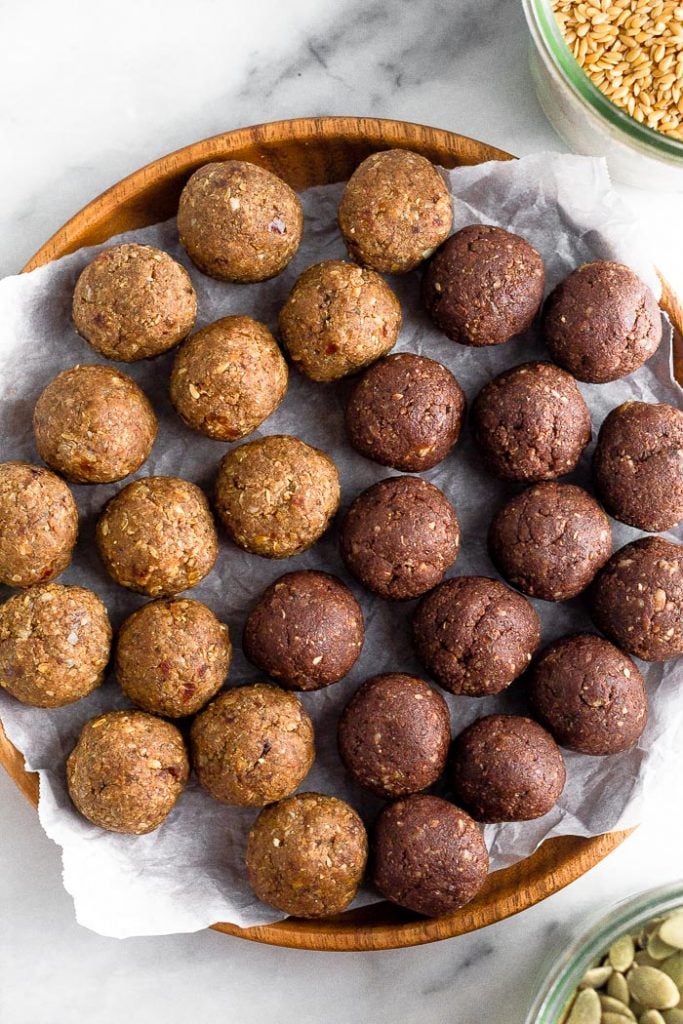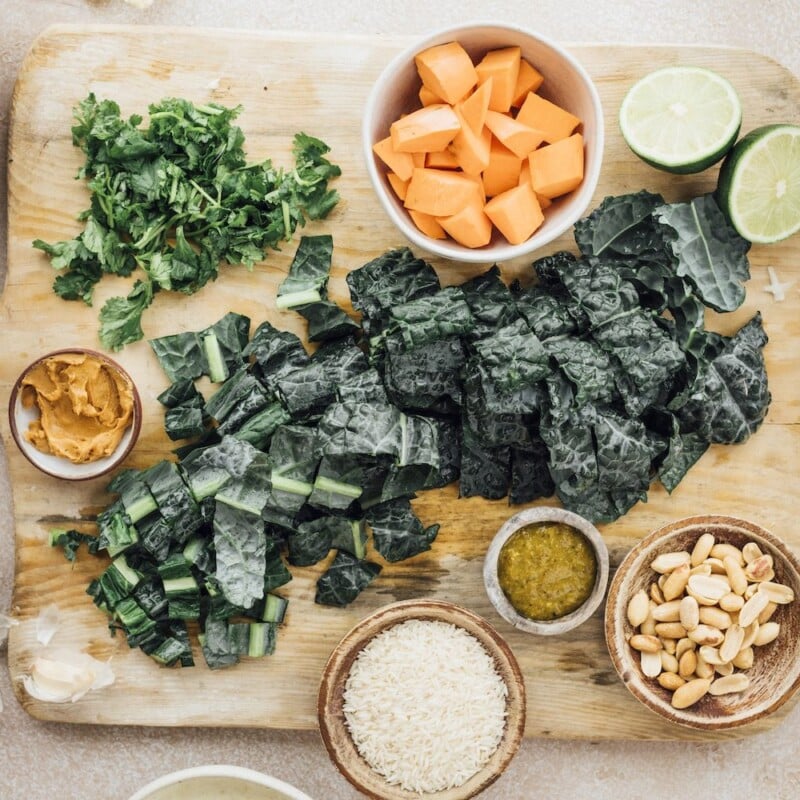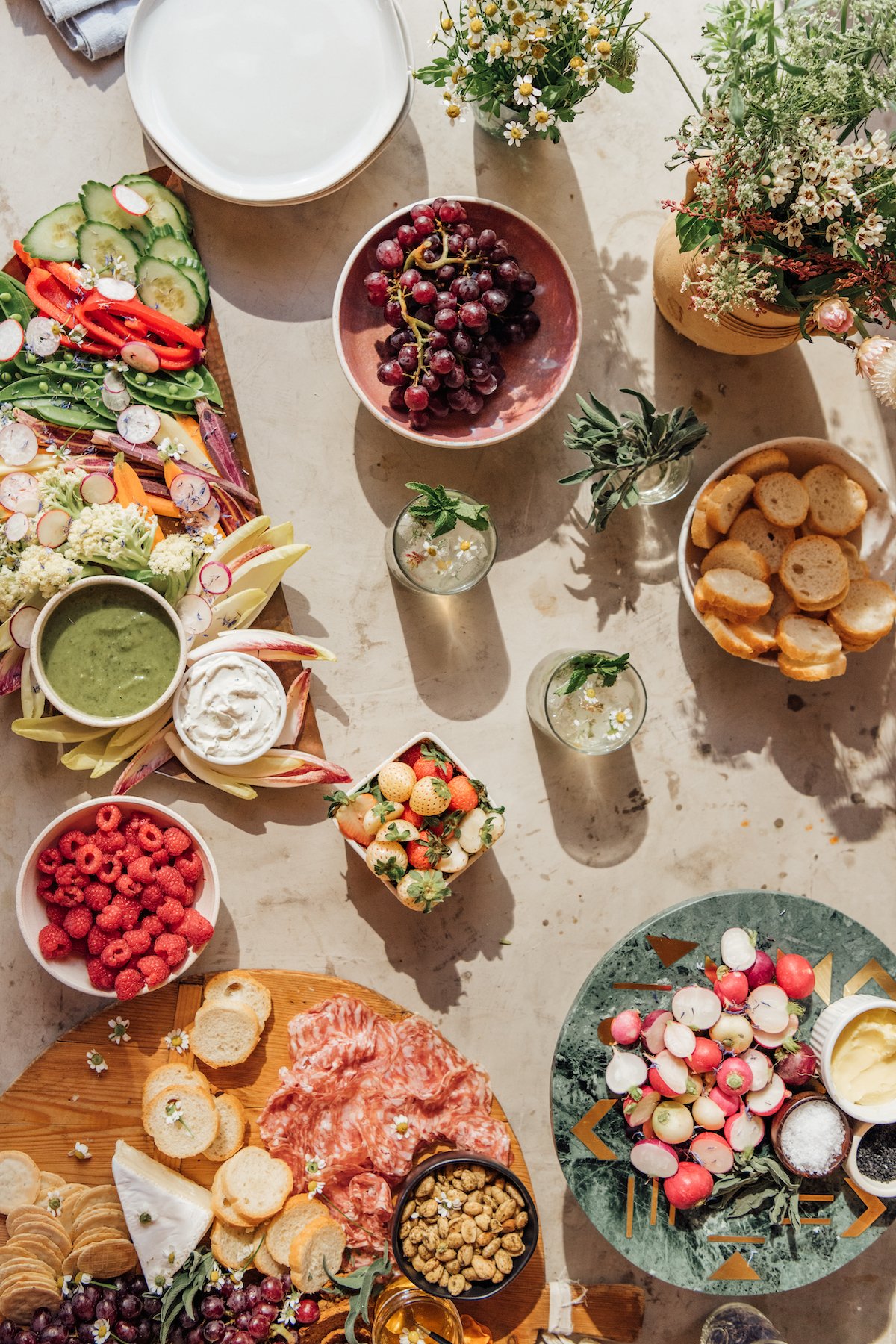When it comes to preventing common diseases like heart disease, cancer, and diabetes, getting back to the basics is key. True health and wellness aren’t tied up in a myriad of powders and supplements. Unlike marketers might have us believe, superfoods are actually just real, whole foods: Avocados, wild-caught salmon, eggs, and sweet potatoes to name a few. And although it’s fun (and functional) to try new potions and powders, these are simply add-ons. It’s what’s on your plate that matters. Ultimately, health is rooted in eating properly prepared, real food. Unfortunately, we (Americans) are the most overfed but undernourished people in the world. Let that sink in. And while the conversation about accessibility is a topic for another post, that stat speaks volumes. Of the many side effects of poor nutrition, unwanted health issues are at the top of the list, i.e. cancer. Luckily, there are a variety of delicious and economical cancer-fighting foods available. In fact, you may already be eating them! We tapped one of our favorite cancer doctors, Dr. Connealy, to get the facts.

About Dr. Leigh Erin Connealy
If you aren’t already following Dr. Connealy on Instagram, here’s your gentle nudge. She’s a wealth of knowledge, and her experience and expertise speak volumes. We love learning about—and are constantly inspired by—her approach to preventing and treating cancer. If you’re unfamiliar with Dr. Connealy, she is a prominent leader in the field of Integrative Medicine. She utilizes the best of all sciences, including conventional, homeopathic, eastern medicine, and modern medicine. She is the Medical Director of Cancer Center for Healing and Center for New Medicine.
Dr. Connealy’s clinics focus on treating “the patient with the disease and not the disease of the patient,” while “determining the origin of the illness.” Over 50,000 patients have visited these clinics. She offers the most scientifically and technologically advanced equipment (and protocols) at her clinic located in southern California. An arm of her business, she created a vitamin and supplement brand, Perfectly Healthy, to support healthy lifestyles. Dr. Connealy is also the author of two books, The Cancer Revolution and Be Perfectly Healthy. Naturally, her books are revolutionizing the landscape of medicine. In 2017, she was named one of the top 50 Functional & Integrative Doctors in the country. You can also find Dr. Connealy across television, publications, webinars, podcasts, public speaking engagements, and so much more. We had the opportunity to interview her, and of course, we learned a ton. She’s a female powerhouse, so of course, we had to tap her to uncover more about her work along with her favorite cancer-fighting foods.

Across varying types of cancer, are there certain (universal) foods you recommend for helping prevent cancer?
Let’s take a step back. What does food do for our bodies? Among many functions, food fuels our energy, repairs the body, and supports the immune system. Food does this through the inherent nutrients that the body utilizes. Choosing the right food to eat is essential to giving our cells what they need so they can perform their intended bodily functions. When we think about preventing cancer, we need to eat the foods that keep the terrain of our body strong so that it is inhospitable to cancer. To achieve this, I think about a few factors.
First and foremost, how bioavailable are the nutrients? In other words, is the food packed dense with nutrients that our body can readily absorb? These nutrient-dense foods are ones that we as humans have always eaten. Humans have been on this planet for thousands of years and therefore there are certain foods that our body is equipped to eat given a long period of evolution. These foods include grass-fed meat, wild seafood, seasonal vegetables, seasonal fruit, honey, and high-quality dairy. I also emphasize a traditional preparation of foods to further support their nutrient bioavailability. For example, I prefer sourdough bread because it is fermented to inhibit phytic acid. Phytate is an ‘antinutrient’ that reduces the availability of zinc, protein, and other nutrients. The sourdough preparation improves the ability of our body to absorb the nutrients provided (bioavailability).
Old-fashioned foods, traditionally prepared as a foundation for eating are what has worked for me and countless patients. If you’re confused about eating, remember that the chronic diseases we see in today’s world are not caused by ancient foods, they are a byproduct of modernity.
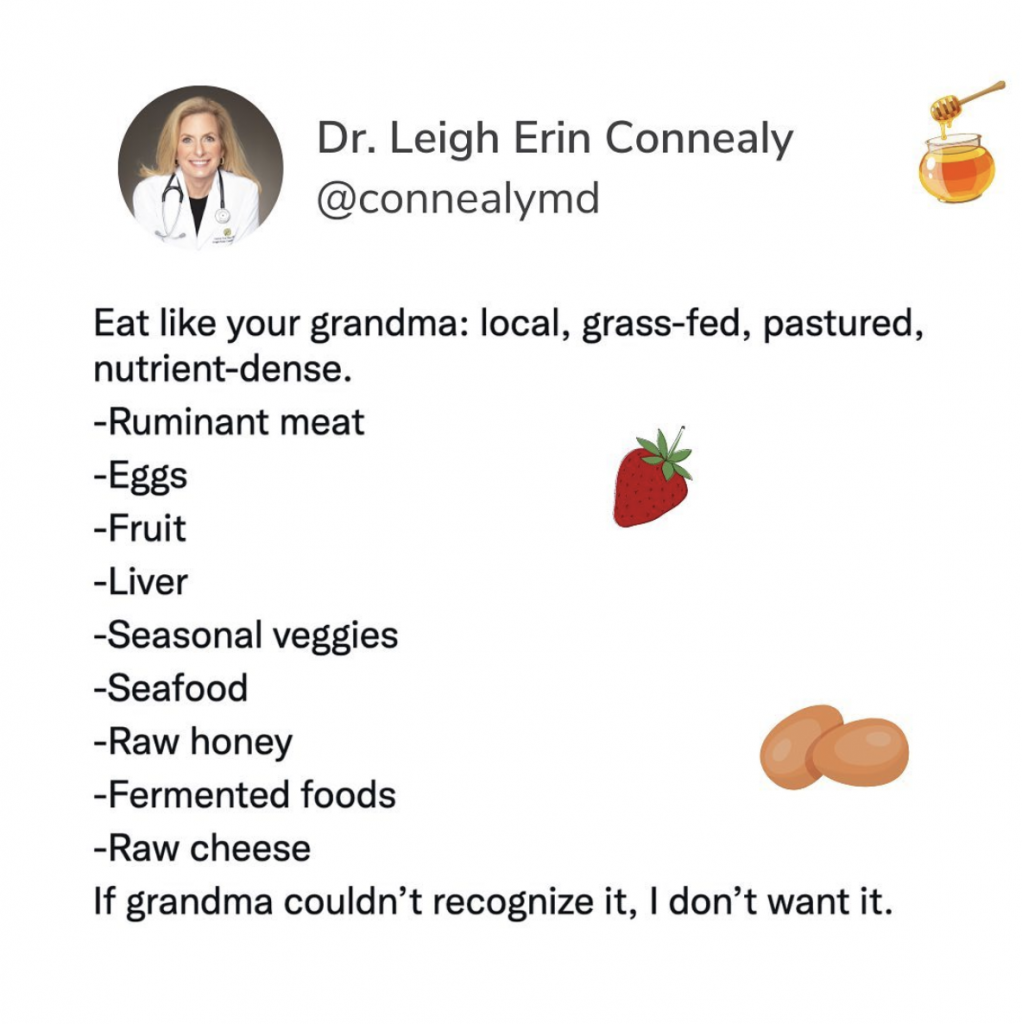
What are staples in your diet for overall health, well-being, and longevity? For example, I know you love your high-quality animal proteins/foods that come from nature.
Well-being and longevity do not just come from good food, but also mental peace, movement, time in nature, daily sunlight, immersive work, and close relationships. In all factors of life, high-quality inputs are paramount to overall well-being.
As for food, I eat like I live on a farm, not a factory. My diet emphasizes high-quality protein and good fats.
My day starts with slow-churned butter in a stainless-steel pan on low heat. Then I put two farm eggs and a slice of sourdough in the pan. For lunch, I have a protein like lamb, steak, cod, scallops, or bison, and usually a root vegetable or high-quality carb. Dinner is often the same as lunch. If I have dessert, it’s homemade ice cream, berries, or organic chocolate. As for superfoods I include oysters, fish roe, and liver in my meals throughout the week.
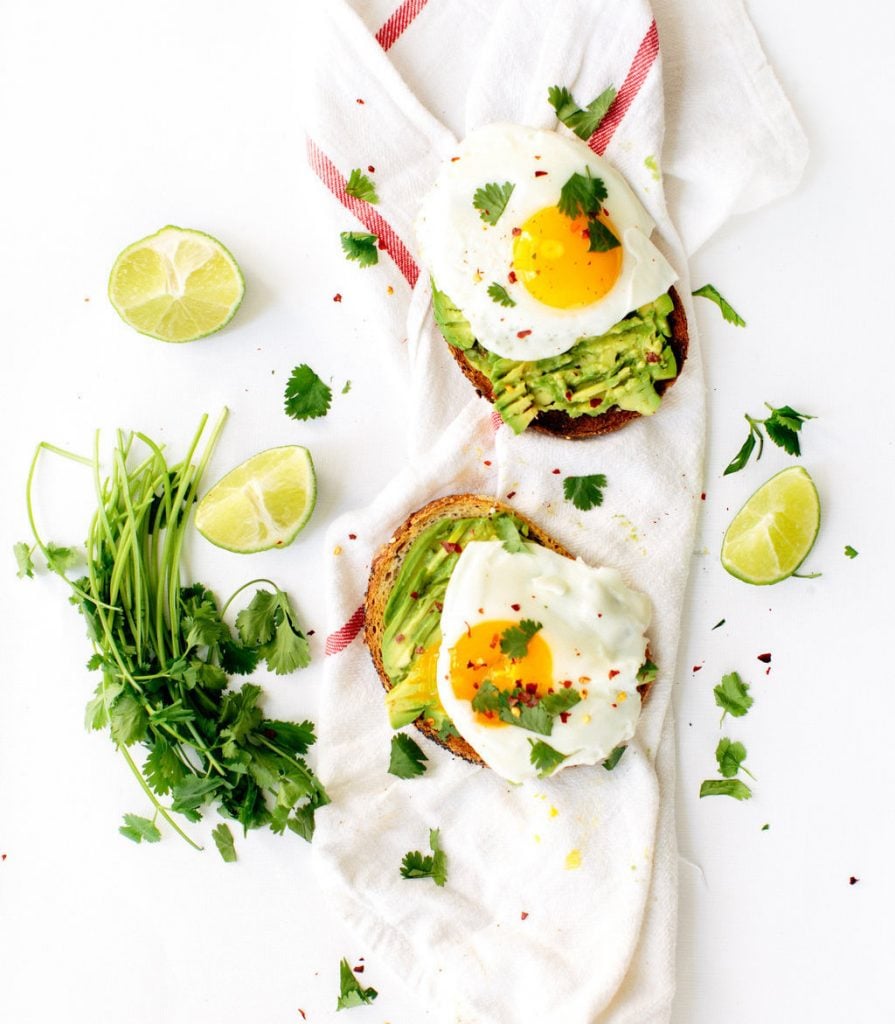
When it comes to preventing breast cancer, knowing that estrogen dominance plays a large role, what are some of your favorite hormone-balancing foods?
Estrogen dominance is a condition of a person having deficient, normal, or excessive estrogen but little or no progesterone to balance its effects in the body. Estrogen dominance is a key causative factor for many breast cancer diagnoses because unopposed estrogen has been shown to stimulate cancer and cause it to grow. Is estrogen a “bad” hormone? No, but it can quickly accumulate when the body isn’t functioning properly, and that’s when the problems begin. Some factors that create this imbalance of estrogen: nutritional deficiencies (without enough protein and B vitamins, the liver can’t process estrogen), stress and radiation both may have estrogenic effects, xenoestrogens, certain medications, and obesity (fat cells create their own estrogen)
A truly multi-faceted approach is needed to balance hormones but one quick tip in regards to food is to eat enough protein. The liver cannot work right if it doesn’t have enough protein because it needs an abundance of proteins, vitamins, and minerals in order to detoxify used hormones out of the system. If estrogen can’t be detoxified, it recirculates in the body causing dysfunction, and this allows estrogen to build up in the body.
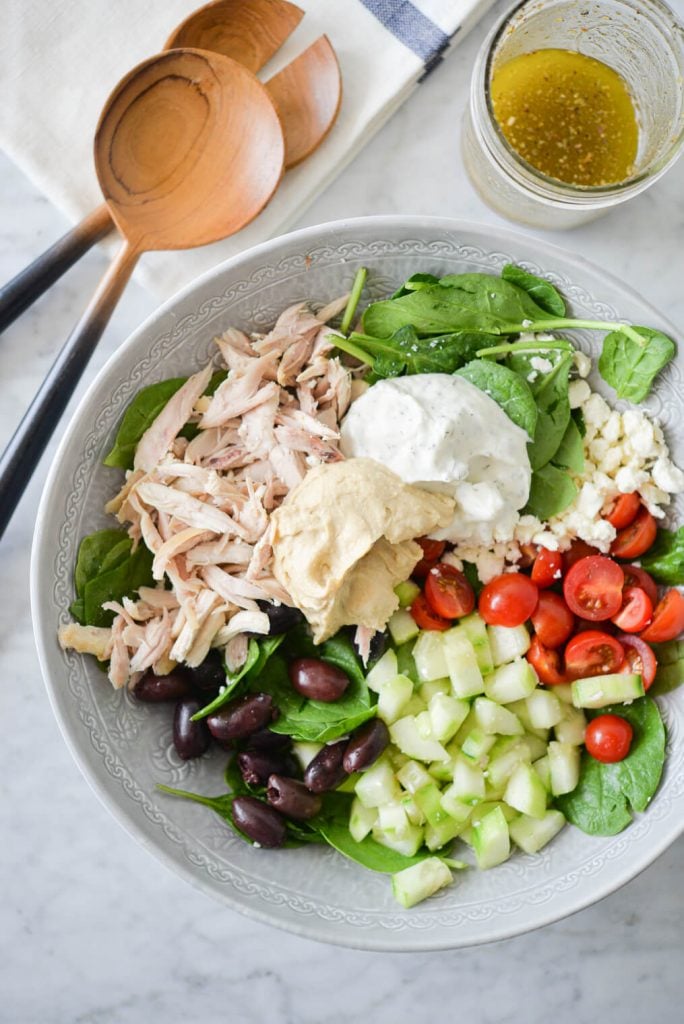
What’s one nutrient-dense food you wish more people were eating on a regular basis?
Liver! Our ancestors didn’t just eat muscle meat, but also other parts of the animal. Liver is a superfood that has been forgotten. Liver is high in Vitamin A which is important to the body’s repair process and to skin health. I like to lightly cook it with butter and onions in the pan.
Foods/ingredients Dr. Connealy recommends minimizing because of their inflammatory markers?
I avoid consuming vegetable oils. Vegetable oils have become a pervasive ingredient in many packaged food in the grocery store. However, some studies show biological damage from excessive amounts of oxidized omega-6 linoleic acid. In one study, mice given a diet high in a fatty acid commonly found in vegetable oil had higher rates of cancer metastasis than the compare group. This may be due to the oil’s impact on mitochondrial function involved in the disease process.
What are possible side effects of consuming too many vegetable oils?
They weaken the immune system, can cause hormone imbalance, and are correlated to aging, clotting, and weight gain. They can also damage DNA and can easily become rancid. These are some of the worst oils: soybean oil, corn oil, safflower oil, and canola oil. Swap them for coconut oil, tallow, butter, olive oil, and ghee.
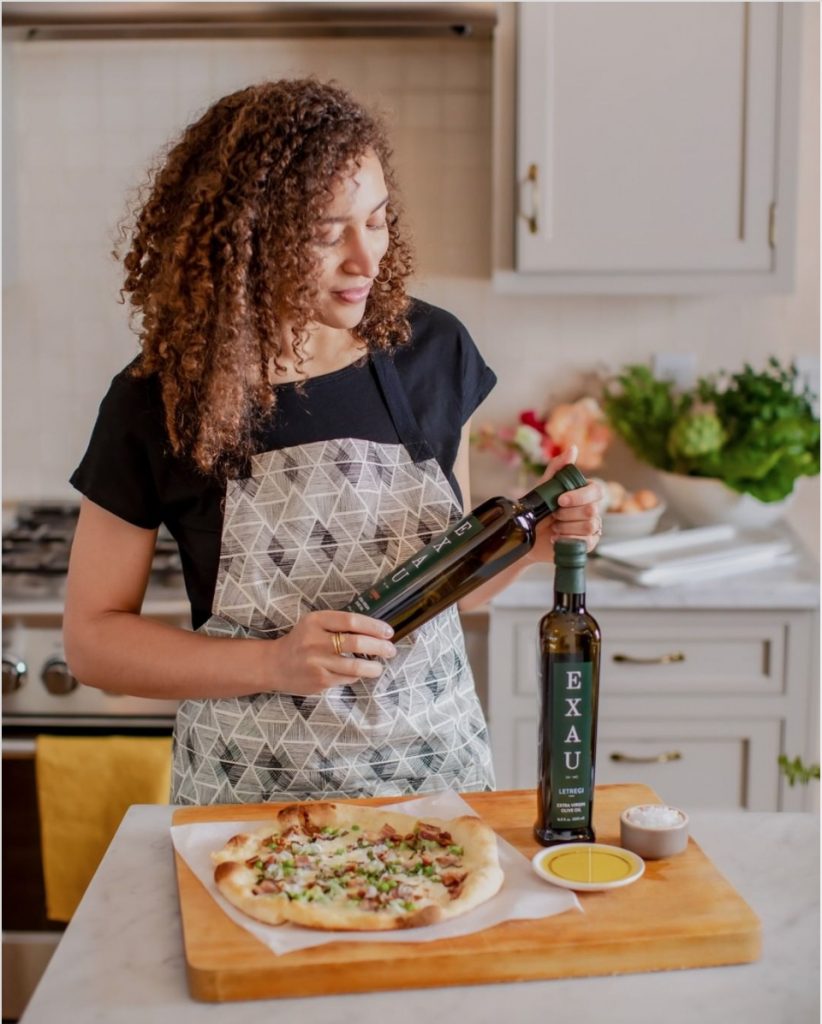
When undergoing cancer treatment, what foods/ingredients do you recommend loading up on (and why)?
The rules of eating during cancer treatment are the same as when a patient doesn’t have cancer. Nutrient-dense foods, minimally processed, traditionally prepared. Three specific guidelines I like to stick to with my cancer patients are no vegetable oils, no white flour, and no refined sugar. We also adjust a patient’s eating based on their preferences and unique diagnoses.
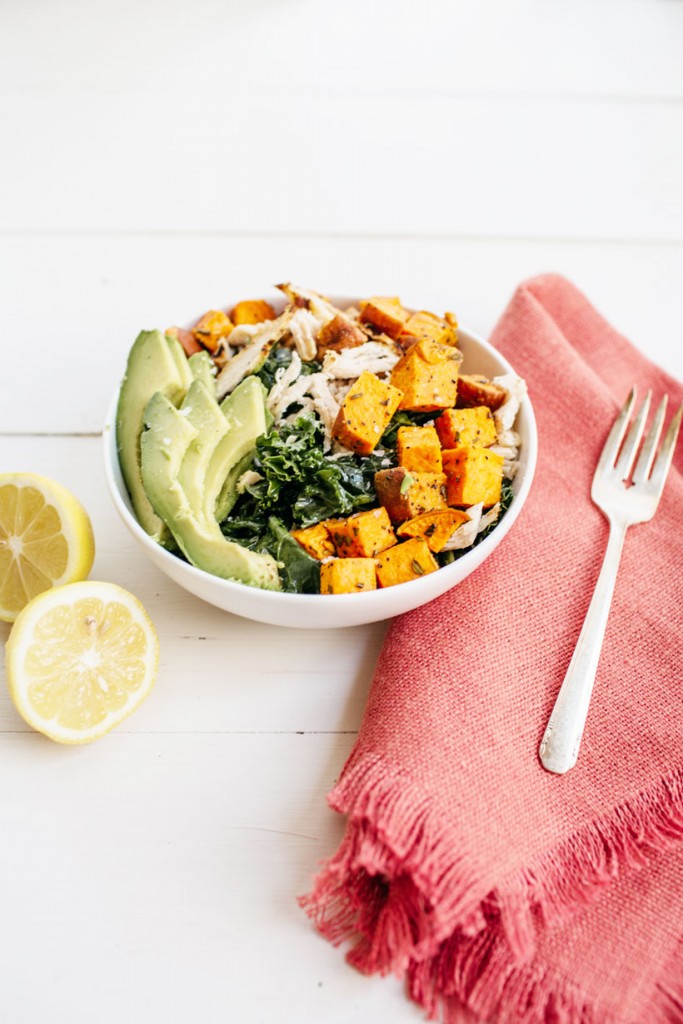
8 Cancer-Fighting Foods Dr. Connealy Recommends:
While no foods protect people against cancer, completely, there are foods that may help lower the risk of developing cancer (and are beneficial to consume while undergoing cancer treatment). If you are undergoing cancer treatment, consult with your doctor, health care practitioner, or physician before changing your diet.
Leafy Greens
Dark leafy greens are one of the healthiest foods on the planet (some would argue, they’re the healthiest). Greens contain substances that protect blood vessels and are associated with a reduced risk of diabetes, inflammation, and cancer. In fact, just because of their high content of antioxidants, green leafy vegetables may be one of the best cancer-preventing foods. Studies show that eating two to three servings of green leafy vegetables—per week—may lower the risk of stomach, breast, and skin cancer.
Given that leafy greens are rich in antioxidants, it’s no surprise that they can work synergistically to remove carcinogens, reduce inflammation, neutralize oxidative stress, and kill cancer cells. Also, several leafy greens (such as kale) and other green vegetables (such as broccoli and bok choy) belong to the cruciferous family of vegetables. These are all rich in folate (the natural form of folic acid), calcium, and more. Although they’re packed with nutrients, they are only consumed in minuscule amounts in a typical American diet.
Super Simple Loaded House Salad by The Healthy Foodie
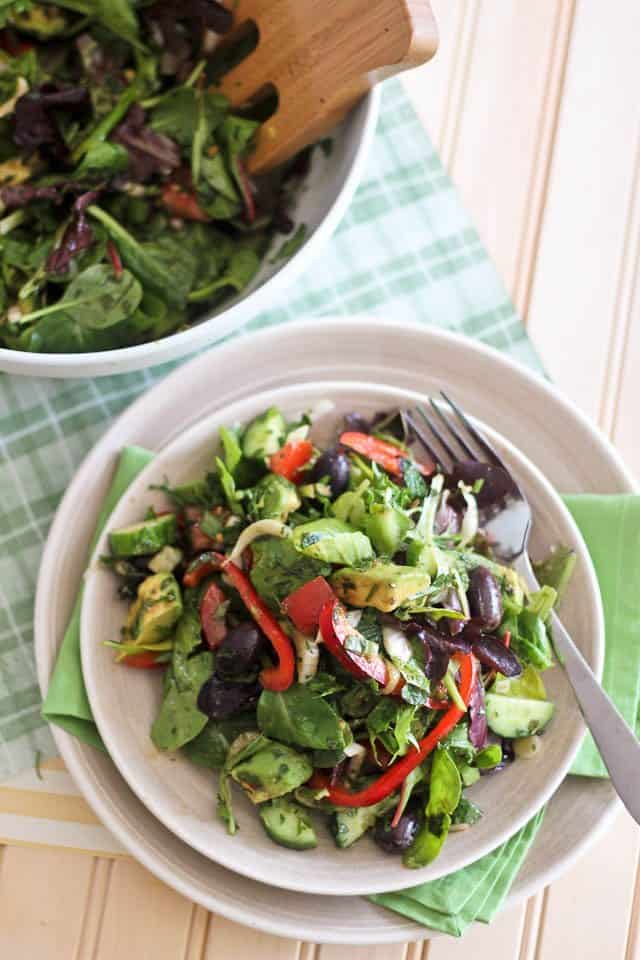
Grass-Fed Meat
While eating processed meat—particularly from conventionally-raised animals—can cause inflammation and lead to colorectal cancer, grass-fed meat has a very different nutritional profile. There is also some evidence that grass-fed beef, in particular, has cancer-fighting properties. A study published in the Nutrition Journal, which examined three decades of research on grass-fed versus grain-fed beef, found that grass-fed beef has twice the level of conjugated linoleic acids (which may have cancer-fighting abilities) than does grain-fed beef. Grass-fed beef also has lower levels of unhealthy fats and higher levels of omega-3 fatty acids, vitamins A and E, antioxidants.
Grass-Fed Beef and Zucchini Skillet by Abra’s Kitchen
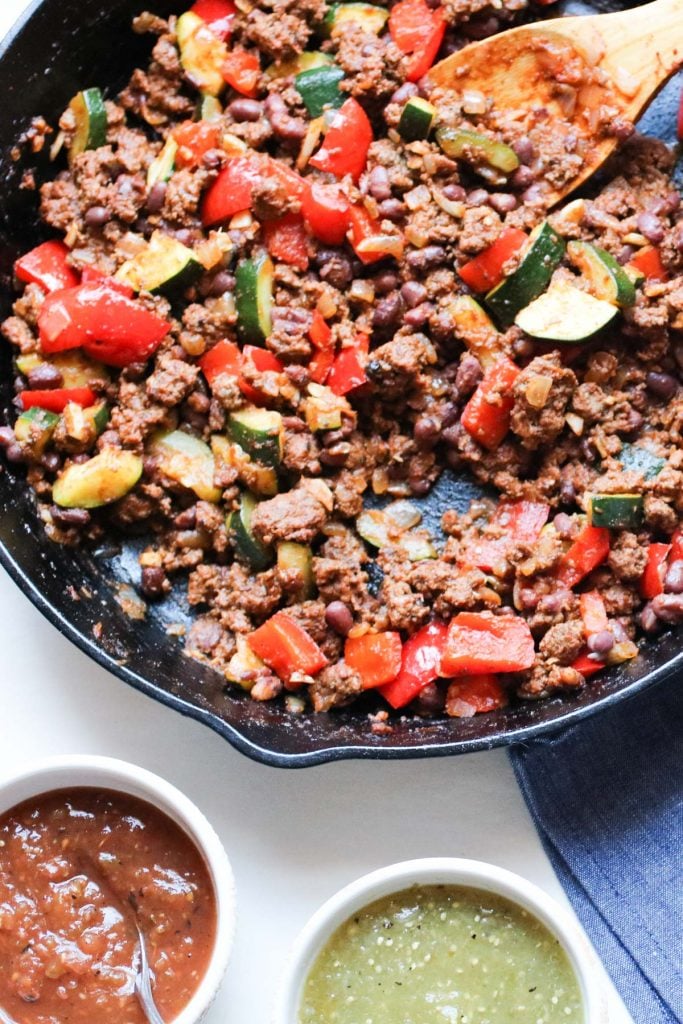
Wild-Caught Seafood
Emerging science shows that ceramides, fat compounds found in oysters, appear to “arrest breast cancer cells grown” in lab tests, according to a study released today by Louisiana State. Dr. Connealy loves her oysters too! Oysters are rich in iron and healthy fats, and (promising) research is underway to uncover their full potential to fight disease. Furthermore, wild-caught salmon is an excellent source of astaxanthin and choline, and a very good source of marine omega-3 fatty acids, vitamin B6, and vitamin D. Salmon is also a source of selenium and contains some CoQ10. Most of these compounds have been associated with a lower risk of cancer, including breast cancer.
Mediterranean Baked Salmon
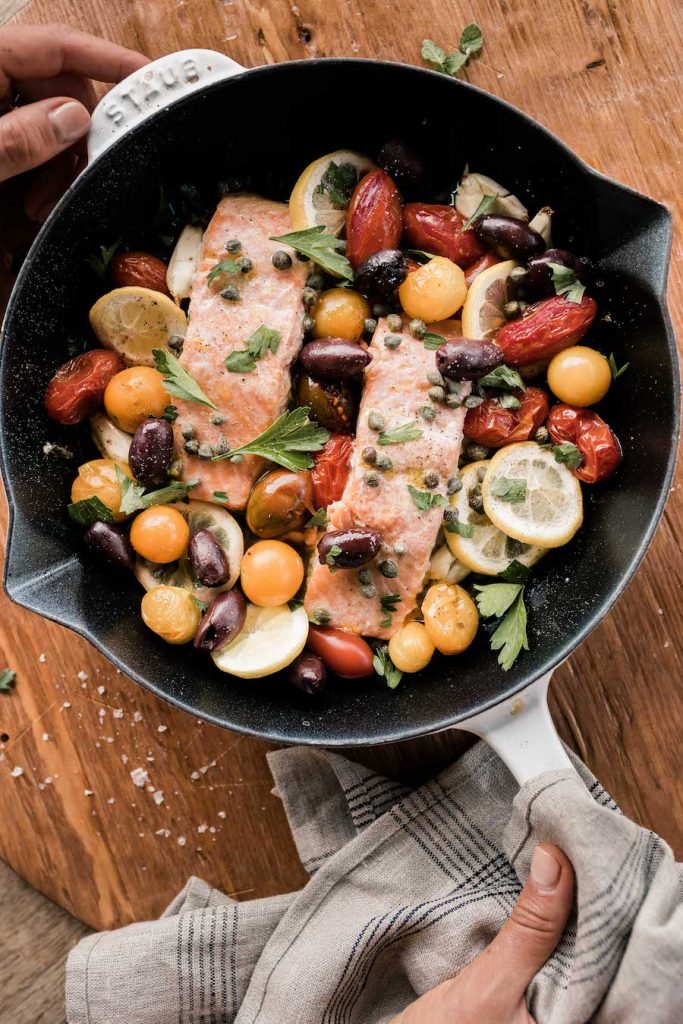
Mushrooms
When it comes to cancer-fighting foods, all vegetables (including onions and garlic!) are beneficial. From Brussels sprouts to sweet potatoes and mushrooms, the more colorful your plate, the better. Consuming mushrooms regularly is associated with decreased risk of breast, stomach, and colorectal cancers. Studies show that individuals who ate 18 grams of mushrooms—about 1/8 to 1/4 cup—daily had a 45% lower risk of cancer compared to those who did not eat mushrooms. In fact, mushrooms are the highest dietary source of ergothioneine, which is a unique and potent antioxidant and cellular protector. Furthermore, mushrooms are unique because they contain aromatase inhibitors—compounds that can block the production of estrogen. These compounds are thought to be largely responsible for the preventive effects of mushrooms against breast cancer. White, cremini, Portobello, oyster, shiitake, maitake, and reishi mushrooms all have anti-cancer and anti-inflammatory properties.
Roasted Mushrooms
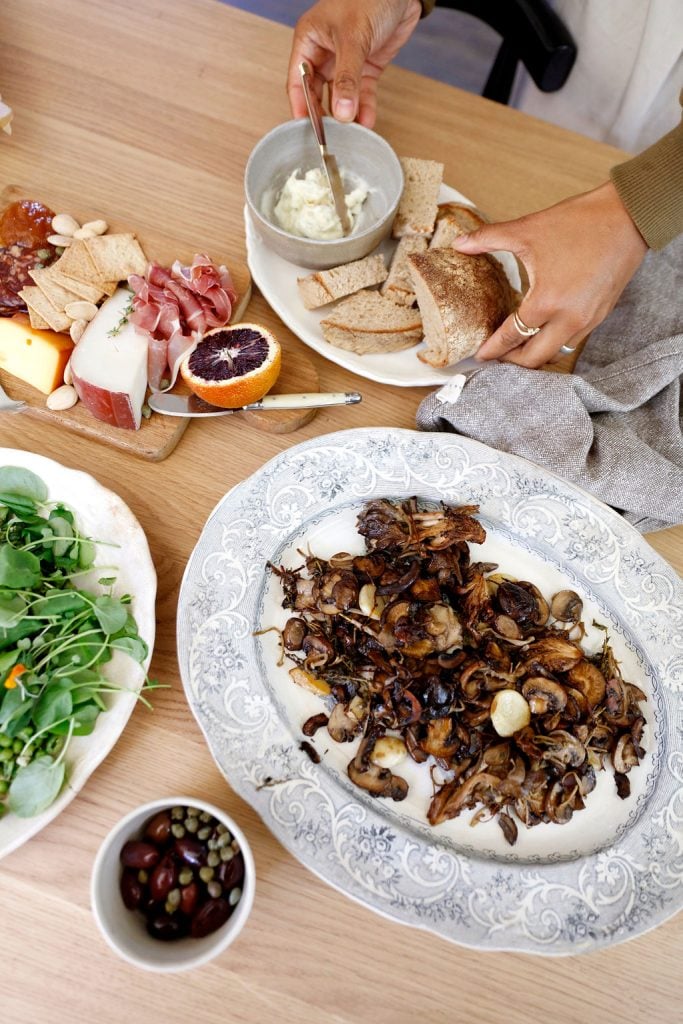
Berries
Unsurprisingly, berries are on the list of cancer-fighting foods. Blueberries, raspberries, strawberries, blackberries, and acai berries are true superfoods. Their plentiful antioxidant content confers both cardio-protective and anti-cancer effects, such as reducing blood pressure, reducing inflammation, preventing DNA damage, inhibiting tumor angiogenesis, and stimulating the body’s own antioxidant enzymes. Furthermore, berry consumption has been linked to reduced risk of diabetes, cancers, and cognitive decline. Naturally sweet and juicy, berries are low in sugar and high in nutrients—they are among the most nourishing, antioxidant-rich foods you can eat.
Berry Smoothie by Joy Food Sunshine
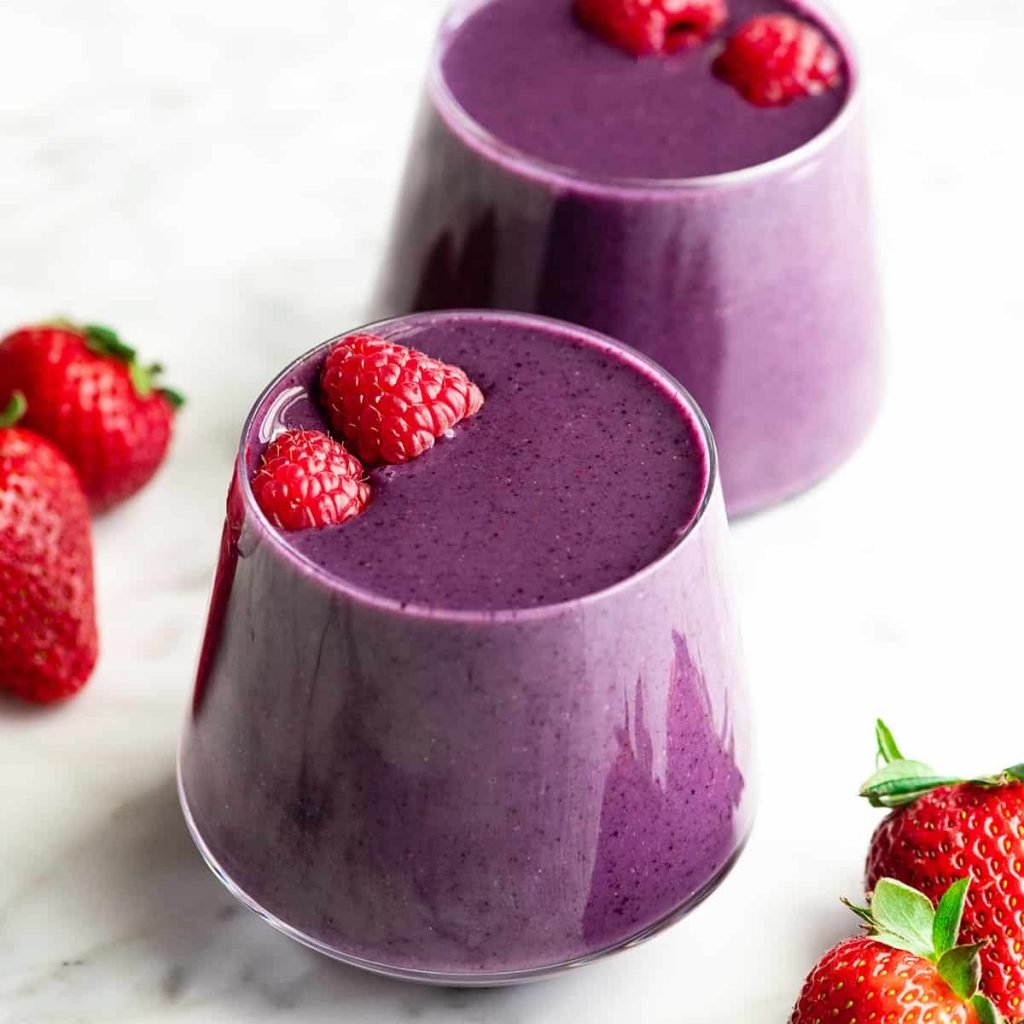
Raw Honey
If you needed an excuse to add a bit of raw honey to your coffee or tea, this is it. Published studies show that honey improves immune status, has anti-inflammatory and anti-microbial properties, and promotes healing of chronic ulcers. Recently honey has been shown to have anti-cancer properties in cell cultures and in animal models. When possible, include other potent anti-cancer ingredients, like ginger and turmeric, into tea with raw honey.
Honey Lemon Ginger Tea by A Radiantly Healthy Life
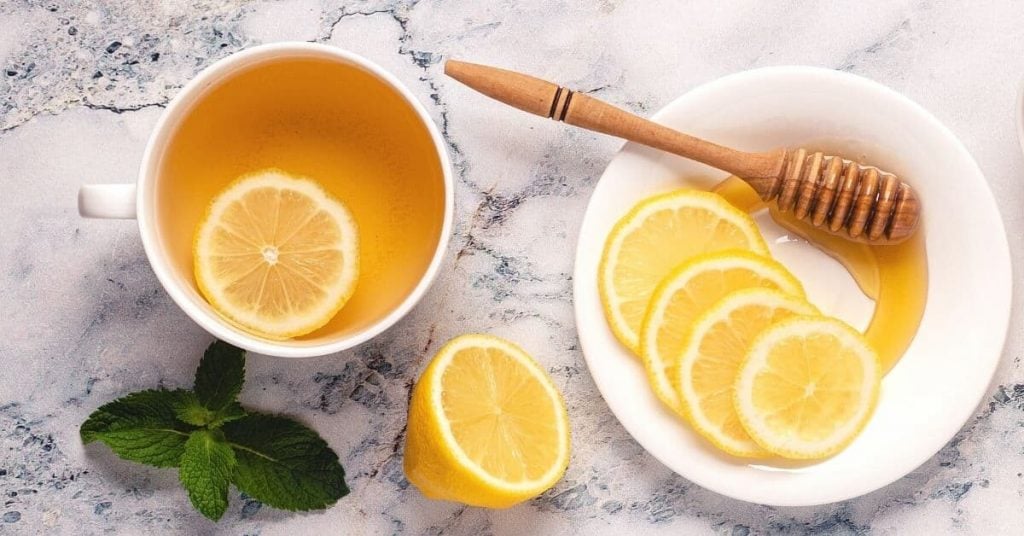
Pasture-Raised Eggs
In comparison to conventionally-raised chickens, pasture-raised eggs are significantly more nutrient-dense. For example, pasture-raised eggs (in comparison to conventional eggs) have 33% less cholesterol, 25% less saturated fat, 67% more vitamin A, two times more omega-3 fatty acids, three times more vitamin E, and seven times more beta carotene. All of these phytonutrients indicate that pastured eggs can be a nourishing choice as a cancer-fighting food. Given that these chickens have space to roam outside, it’s no wonder that their yolks are packed with added nutrients. Pastured eggs are likely the healthiest type of eggs you can buy, but if you can’t get pastured eggs, aim for organic omega-3-enriched eggs.
Veggie Frittata by Love and Lemons

Seeds
Seeds and nuts contain healthy fats and are rich in a spectrum of micronutrients, including antioxidants. The nutritional profiles of seeds are similar to nuts when it comes to healthy fats, minerals, and antioxidants, but seeds are also abundant in trace minerals. They’re also higher in protein than nuts, and each kind of seed is nutritionally unique. For example, flax, chia, and hemp seeds are extremely rich sources of omega-3 fats. In addition to the omega-3s, flaxseeds are rich in fiber and lignans. Omega-3s, in particular, is necessary for decreasing inflammation in the body. And we want low levels of inflammation because a variety of cancers have been linked to chronic inflammation. Incorporating a variety of seeds, from chia to sunflower and sesame, is key.
Seed Cycling Energy Balls by Eat The Gains
